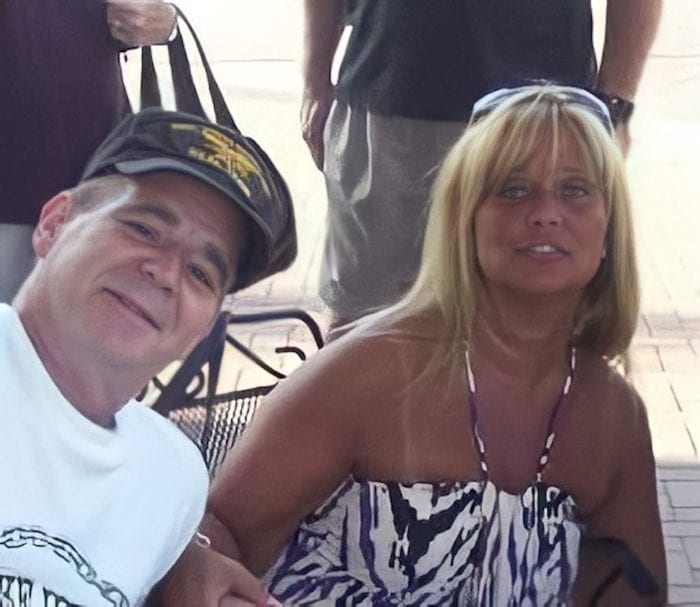Family member reflects on funerals, personal loss amid pandemic

In September, Richard Spence, 64, of Selden, died of a heart attack.
Stunned by the loss, the extended family confronted the difficulty of planning a funeral during the COVID-19 pandemic.
“We felt we had to be strict. My mother is 91, so we were diligent in who was coming and who was not able to come.”
— Carole Ganzenmuller
Carole Ganzenmuller, Spence’s sister, knows firsthand the suffering and difficulty the pandemic has created for mourning families. Ganzenmuller works as a funeral director’s assistant at East Setauket-based Bryant Funeral Home, where she and the staffs at so many other funeral homes on Long Island and around the country grappled with restrictions on the kinds of personal support people could normally provide after the loss of a loved one.
“We couldn’t do the normal funeral,” Ganzenmuller said. “We felt we had to be strict. My mother is 91, so we were diligent in who was coming and who was not able to come.”
Indeed, she said many of the extended relatives from out of state couldn’t attend the funeral for Spence, who served in active duty for the Navy for four years and as a reserve for two years. He was buried at Calverton National Cemetery.
While the family did have visitation and used Zoom, Ganzenmuller said they didn’t “go through the normal process.”
She said her children, who are in California and were on lockdown, knew they couldn’t attend.
“We didn’t want that many people around my mom,” Ganzenmuller said.
Telling people not to come was a “very hard thing to do” as it cuts the grieving process and the goodbyes become more complicated, she added.
The grandchildren couldn’t embrace their grandmother, which would have provided the customary comfort
and support.
Ganzenmuller’s family has had several members play active roles in serving the country through the armed forces. Her late brother William, who died at the age of 43, served in the Air Force, while her oldest brother Gary is a Marine veteran who served in Vietnam. Her late father Robert was in the Merchant Marine.
“We hang an American flag with great pride,” she said.
Sad as it was for Ganzenmuller and her family to lose Spence this fall, she recognized that they had more opportunities to grieve her brother than people who lost loved ones in the spring of 2020, during the earlier part of the pandemic.
In some cases, Ganzenmuller recalled how she went to a cemetery on her own, bringing a casket without a family along.
“I was going to Calverton where the families could not attend the funerals,” she said. She said the “Hail Mary” prayer on behalf of the families when she brought the deceased to the cemetery.
The increasing number of deceased people Ganzenmuller bought to the cemetery or the crematorium made her feel as if she were “in a war zone.”
“I felt a little blessed that my family was allowed to have what we had.”
— Carole Ganzenmuller
Ganzenmuller’s family had an honor guard for her brother, and the flag was presented to her mother.
“It’s very special,” she said. She has thought of all the people who couldn’t receive that honor. In fact, she said some religious officials didn’t feel comfortable entering the funeral home, so those services occurred outside.
“What was a normal ritual was no longer a normal ritual for people,” Ganzenmuller said.
The pandemic changed the way people could grieve and could say goodbye.
“I felt a little blessed that my family was allowed to have what we had,” she said. “I’m sure the healing process was tougher” for people during the early months of the pandemic, regardless of what caused a close friend or family member to die.
Through all the funerals, some of which continue for COVID-19, Ganzenmuller appreciated how the staff at Bryant Funeral Home and in the industry as a whole pulled together as a team.
“We’re saying to ourselves, ‘There’s hopefully light at the end of the tunnel when masks will come down and people can grieve in a normal way,’” she said. “They want to hug their family, they want to cry on them — and not give the elbows anymore.”






